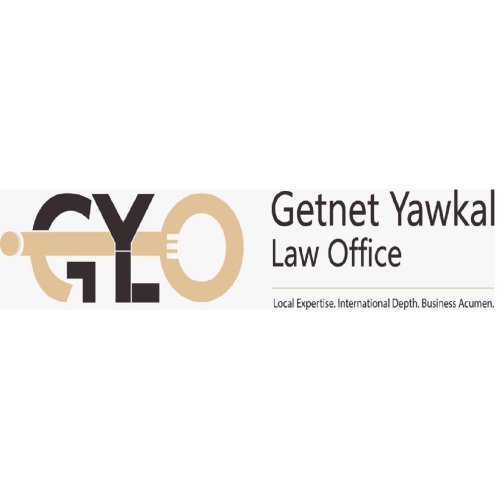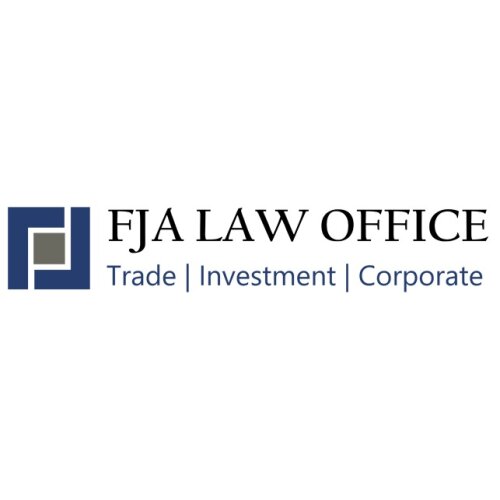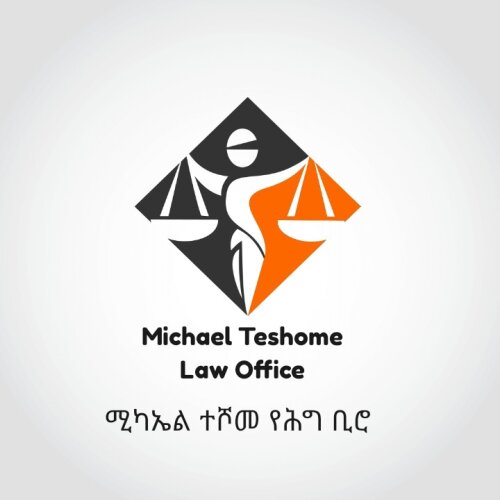Best FDA Law Lawyers in Addis Ababa
Share your needs with us, get contacted by law firms.
Free. Takes 2 min.
List of the best lawyers in Addis Ababa, Ethiopia
About FDA Law in Addis Ababa, Ethiopia
FDA Law in Ethiopia deals with the regulation, control, and oversight of food, drugs, medical devices, cosmetics, and related products to ensure public safety and health. The Ethiopian Food and Drug Authority (EFDA), formerly known as the Ethiopian Food, Medicine and Healthcare Administration and Control Authority, is the central regulatory body overseeing these activities in Addis Ababa and throughout the country. FDA Law encompasses a wide range of regulations, including product registration, labeling requirements, clinical trial approvals, licensing for manufacturers and distributors, post-market surveillance, import and export controls, and enforcement against unsafe or noncompliant products.
Why You May Need a Lawyer
Navigating FDA Law in Addis Ababa can be complex due to the technical nature of regulations and the involvement of multiple government agencies. Legal assistance can be crucial in several situations, such as:
- Registering new food products, medicines, or medical devices with the EFDA.
- Securing permits and licenses for manufacturing, importing, or distributing regulated products.
- Handling compliance inspections and responding to regulatory enforcement actions.
- Understanding local and international standards relevant to product safety and efficacy.
- Addressing issues related to product recalls or alleged violations of quality standards.
- Litigating disputes involving FDA Law, such as defending product liability claims or appealing EFDA decisions.
- Guiding companies involved in clinical trials or research activities in line with ethical and legal requirements.
- Preparing and reviewing contracts related to regulated products and services, including distribution and commercialization agreements.
Local Laws Overview
In Addis Ababa, FDA Law is mainly governed by the Food and Medicine Administration Proclamation No. 1112/2019 and its supporting regulations. Key local law aspects include:
- Product Registration: All foods, drugs, medical devices, and cosmetics require registration and pre-market approval by the EFDA. Unregistered products cannot be sold or advertised.
- Licensing: Manufacturers, wholesalers, importers, and suppliers must obtain valid licenses from the EFDA and maintain compliance with Good Manufacturing Practices (GMP) and Good Distribution Practices (GDP).
- Labeling Requirements: Products must be correctly labeled with their name, ingredients, manufacturer’s details, expiry date, and usage instructions. Labels must comply with EFDA standards and, in most cases, be presented in Amharic or English.
- Clinical Trials: Any research involving human subjects in Addis Ababa must gain EFDA approval, adhere to ethical standards, and ensure proper safety monitoring.
- Import and Export Controls: Importers and exporters must comply with EFDA procedures and may be required to provide documentation proving product quality and safety.
- Inspection and Enforcement: The EFDA carries out regular inspections and testing of products in the market. Noncompliance can result in fines, product recalls, or criminal prosecution.
- Post-Market Surveillance: All market products are subject to ongoing monitoring. Companies are obliged to report adverse events and cooperate in case of investigations.
Frequently Asked Questions
What types of products does the EFDA regulate in Ethiopia?
The EFDA regulates food, medicines, medical devices, cosmetics, biologics, and certain chemicals. This includes both locally manufactured and imported items.
Do I need to register each product with the EFDA before selling in Addis Ababa?
Yes. Every product falling under EFDA's jurisdiction must be registered and approved by the Authority before it can be marketed, distributed, or even advertised.
How long does the product registration process usually take?
Timelines vary based on the product type and completeness of the application. It can take several weeks to months. Delays are common if additional documentation or testing is requested.
What documents are needed for EFDA product registration?
Required documents may include a completed application form, product samples, certificates of analysis, manufacturing licenses, and detailed scientific or clinical data supporting safety and efficacy.
Can I advertise my products without EFDA approval?
No. Advertising regulated products without prior EFDA approval is prohibited and may result in penalties or banning of the product from the market.
What should I do if my product is found to be noncompliant or harmful?
Immediately notify the EFDA and cooperate with any product recall or corrective actions. Consult a lawyer to assist with compliance and represent your interests.
Are there labeling requirements specific to Ethiopia?
Yes. The EFDA requires labels on regulated products to include product information in Amharic or English, with clear details on composition, manufacturer, expiry, and intended use.
Does the EFDA recognize international certifications or approvals?
International approvals or certifications can support your application, but products must still be registered locally with the EFDA and comply with Ethiopian standards.
What are the consequences of violating FDA Law in Ethiopia?
Violations can result in fines, withdrawal of licenses, product seizures or recalls, criminal proceedings, and reputational damage.
How can a lawyer assist me with EFDA matters?
Lawyers can guide you through compliance, prepare documentation, represent you in dealings with the EFDA, defend against enforcement actions, and assist with dispute resolution or litigation.
Additional Resources
Several resources can help you understand and comply with FDA Law in Addis Ababa:
- Ethiopian Food and Drug Authority (EFDA): The main regulatory body for food, medicines, and health products.
- Ministry of Health of Ethiopia: Collaborates with the EFDA on regulatory and health policy matters.
- Chambers of Commerce and Industry: Provides support and updates to businesses on regulatory changes.
- Law firms with experience in regulatory compliance: Offer advice and representation on FDA-related legal matters.
- Local industry associations: May provide guidance for specific sectors such as pharmaceuticals or food processing.
Next Steps
If you require legal assistance with any issue related to FDA Law in Addis Ababa, you should:
- Gather all relevant documents including product information, previous correspondences with the EFDA, and licenses or permits.
- Identify your specific legal needs, such as product registration, compliance review, or handling regulatory enforcement.
- Consult with a qualified lawyer or legal advisor experienced in Ethiopian FDA Law. They can provide tailored advice, assist with document preparation, and represent your interests before regulators.
- Stay updated with the latest EFDA guidelines and regulatory changes to ensure ongoing compliance and avoid potential legal risks.
- Engage with local industry groups for peer support and up-to-date sector insights.
Legal guidance is essential for ensuring your products and operations meet Ethiopian regulatory standards and for protecting your rights in any FDA-related legal matter.
Lawzana helps you find the best lawyers and law firms in Addis Ababa through a curated and pre-screened list of qualified legal professionals. Our platform offers rankings and detailed profiles of attorneys and law firms, allowing you to compare based on practice areas, including FDA Law, experience, and client feedback.
Each profile includes a description of the firm's areas of practice, client reviews, team members and partners, year of establishment, spoken languages, office locations, contact information, social media presence, and any published articles or resources. Most firms on our platform speak English and are experienced in both local and international legal matters.
Get a quote from top-rated law firms in Addis Ababa, Ethiopia — quickly, securely, and without unnecessary hassle.
Disclaimer:
The information provided on this page is for general informational purposes only and does not constitute legal advice. While we strive to ensure the accuracy and relevance of the content, legal information may change over time, and interpretations of the law can vary. You should always consult with a qualified legal professional for advice specific to your situation.
We disclaim all liability for actions taken or not taken based on the content of this page. If you believe any information is incorrect or outdated, please contact us, and we will review and update it where appropriate.

















